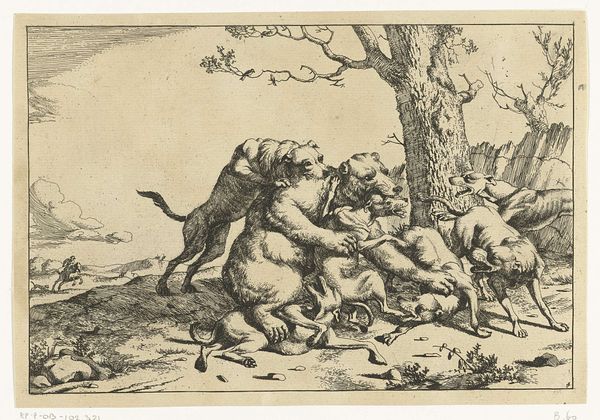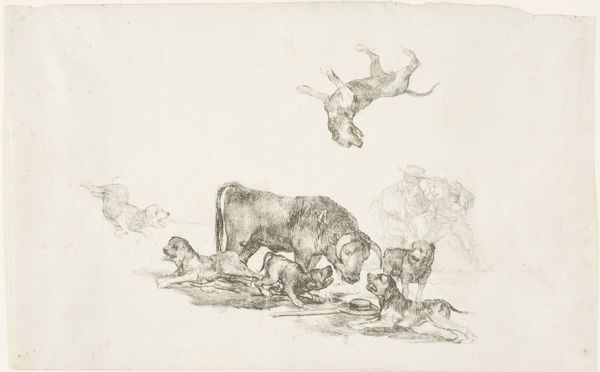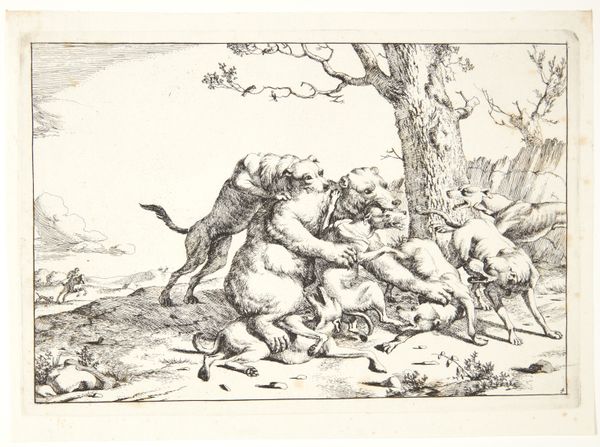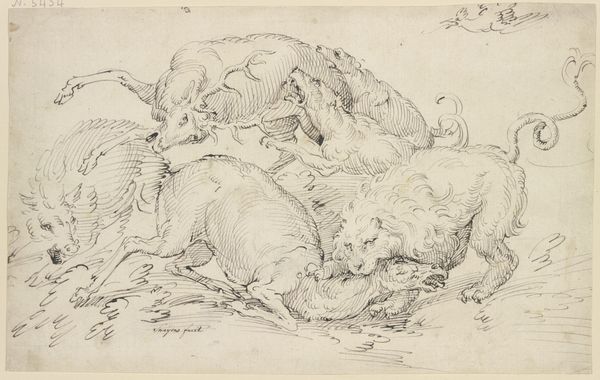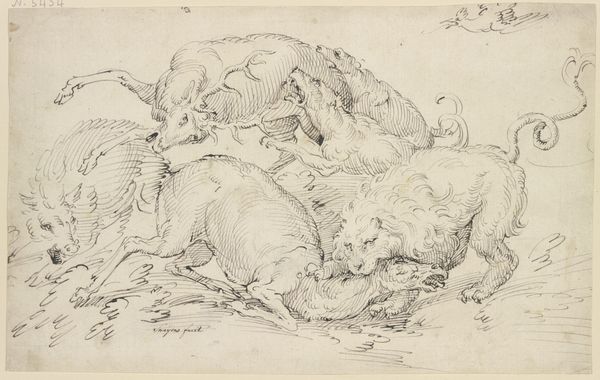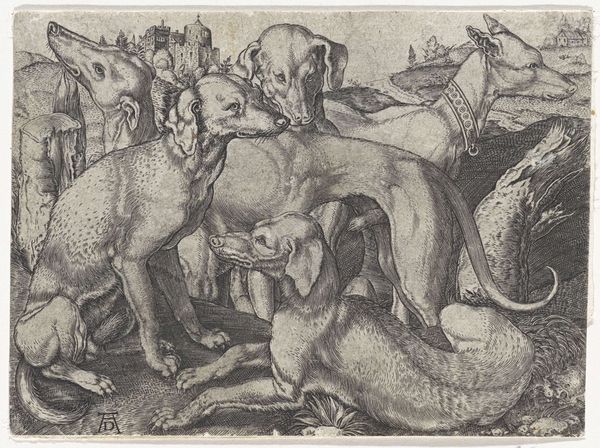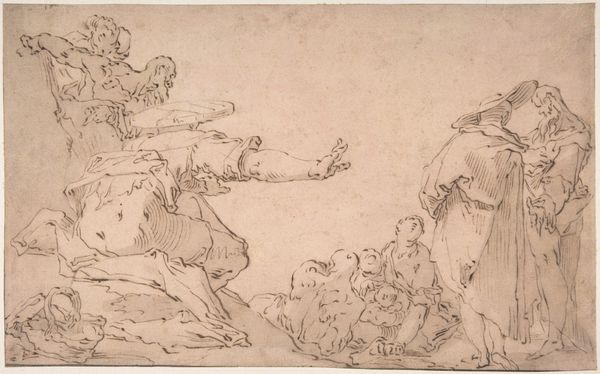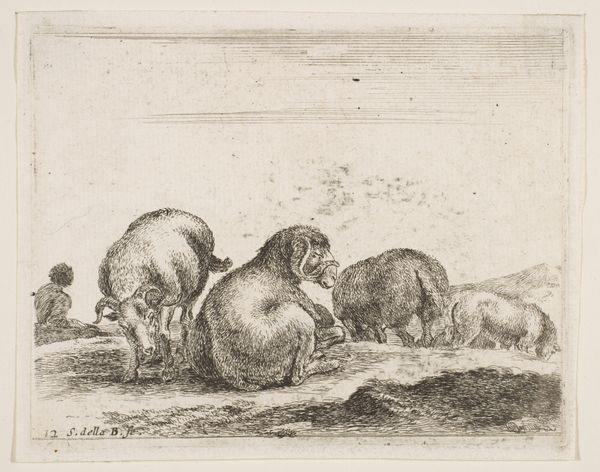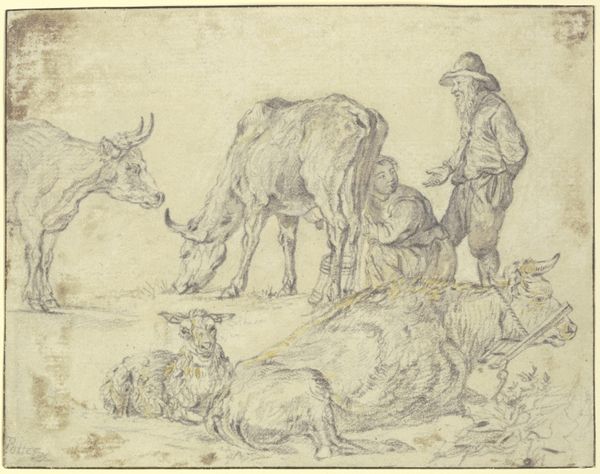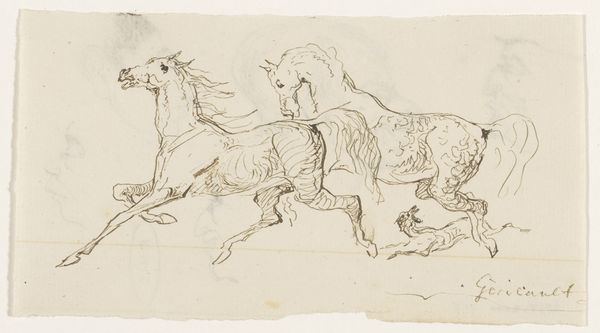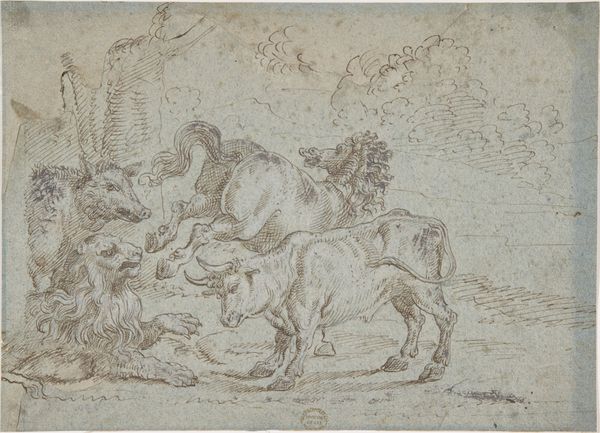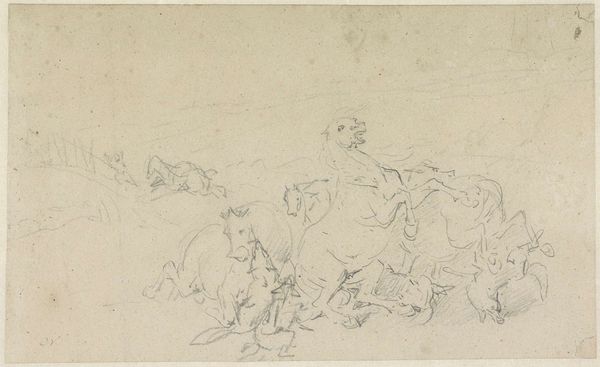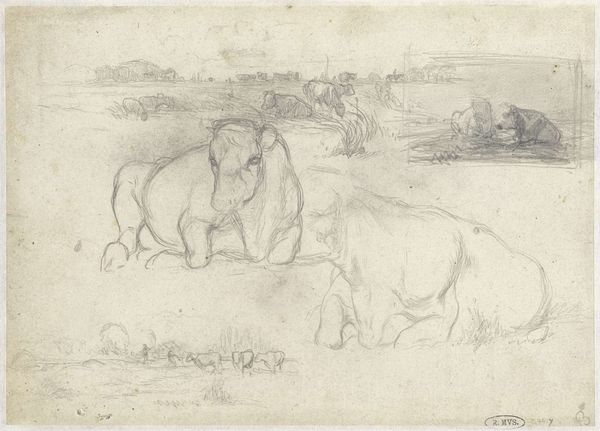
drawing, print, paper, ink, ink-drawings, graphite, pen
#
drawing
#
ink drawing
#
germany
#
pen drawing
#
animal
# print
#
pen illustration
#
pen sketch
#
dog
#
paper
#
personal sketchbook
#
ink
#
ink drawing experimentation
#
ink-drawings
#
pen-ink sketch
#
water
#
pen work
#
graphite
#
sketchbook drawing
#
pen
#
sketchbook art
Dimensions: 222 × 320 mm
Copyright: Public Domain
Editor: We’re looking at Joseph Georg Wintter’s 1789 work, "Dogs Attacking a Bull," rendered in ink on paper. It feels incredibly dynamic, like a snapshot of raw energy. What compositional choices strike you? Curator: The energetic lines are quite captivating. Note how Wintter masterfully uses line weight and density to create depth and suggest movement. See the varying thicknesses defining the dogs’ muscles and the bull’s tormented form. What sort of structural techniques did Wintter employ to unify such a chaotic scene? Editor: Well, the overlapping figures certainly create a sense of depth, and the varied poses of the dogs—some leaping, some biting, some recoiling—contribute to the feeling of frenzied action. Are you implying the chaos isn't actually random? Curator: Precisely. Though seemingly disordered, the composition adheres to a visual rhythm. Notice how the dogs’ bodies create diagonal lines, leading the eye across the scene, while the central mass of the bull acts as an anchor. Did you perceive an understanding of anatomy communicated by the shapes? Editor: Yes, despite the somewhat sketch-like quality, the anatomy is well-defined. There's a clear sense of the dogs' musculature and the bull's size and power, even in distress. It is interesting how line is used in place of shading or tonality. Curator: Precisely! Wintter's exclusive reliance on line dictates form, tone, and spatial relations, making the graphic structure quite bold. These techniques point towards understanding of the forms represented in a very efficient manner, but I wonder about the degree to which narrative and subject influenced your reaction. Editor: You're right, it’s hard to separate the emotional impact of the scene from the way it’s rendered. But focusing on the lines and composition really does reveal the skill and intention behind what seems like a purely visceral depiction. Curator: Indeed. By observing line, form, and structure, we gain deeper insight into the artistic language employed, regardless of the subject represented.
Comments
No comments
Be the first to comment and join the conversation on the ultimate creative platform.
